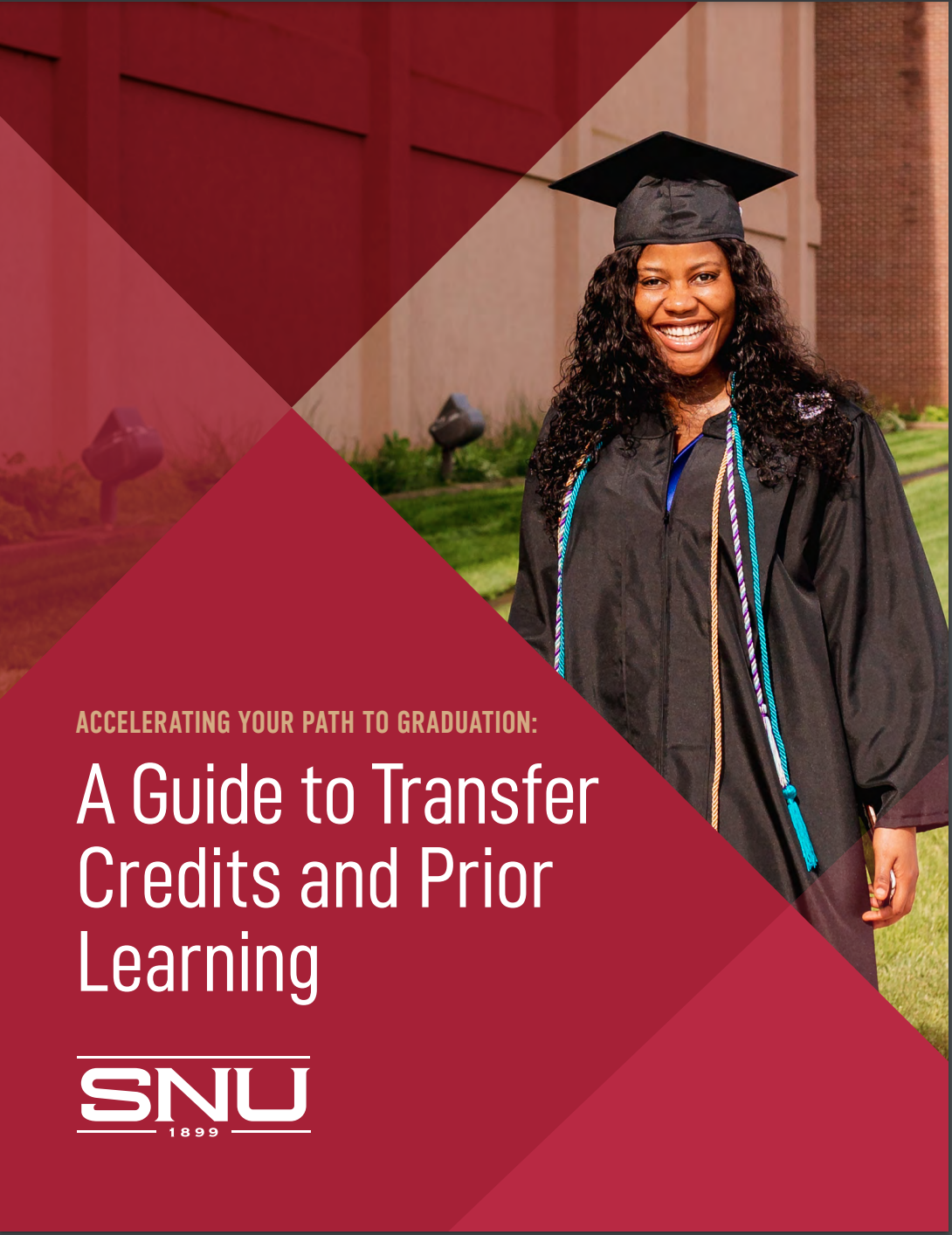-
Programs
Not Sure Where to Start?
- Associate Programs & Certificates
- General Studies
- Associate of Arts in Business
- Physical Therapist Assistant
- Professional Services & Certificates
- Special Education Bootcamp
- View All
- Undergraduate Programs
- Business Administration
- Criminal Justice
- Cybersecurity
- Education
- Family Studies and Gerontology
- Healthcare Administration
- Organizational Leadership
- Accelerated General Education
- View All
- Graduate & Doctorate Programs
- Doctorate of Education in Administration & Leadership
- M.A. Administration of Special Ed.
- M.A. Applied Psychology
- M.A. Educational Leadership
- M.A. Sports Management & Administration
- M.A. Teaching
- MBA, 12- 18 months
- MBA - Healthcare Administration
- Master of Organizational Leadership
- M.S. Counseling Psychology
- M.S. Exercise Science - Health & Human Performance
- M.S. Exercise Science - Wellness
- M.S. Instructional Design Technology
- M.S. Management
- M.S. Physician Assistant
- Alternative Certification (Teaching or Special Ed.)
- View All
- Resources
- Tuition & Aid
- Military

Introduction
When you start a degree program with some prior experience under your belt, you want to take full advantage of that experience. At Southern Nazarene University (SNU), you can! Our comprehensive transfer and prior learning credit program ensures our students receive credit where it’s due, whether for previous courses completed, on-the-job training, professional certifications or other forms of learning.
Make the most of the experience you’ve gained to jump-start your educational and career goals.
Scroll to keep reading "Accelerating Your Path to Graduation: A Guide to Transfer Credits and Prior Learning" or complete the form to download a PDF version!

What Are Transfer Credits and Prior Learning Credits?
How Can You Transfer College Credits?
How Can You Get Credit for Prior Learning?
Cash in on the Benefits of Transfer and Prior Learning Credits
Get Credit for Previous Learning to Jump-Start Your Education and Career Goals

What Are Transfer Credits and Prior Learning Credits?
Transfer credits and prior learning credits are two distinct ways to earn credit toward your degree through previously completed learning.
Transfer Credits
Transfer credits are course credits granted at one higher education institution and carried over to your transcript at another institution. If you’re included in the more than 40 million people across the U.S. who have some college credit without a degree credential, you may be able to count that credit toward your current degree program at SNU. These credits can help you fulfill the requirements of your current degree program, just as courses from SNU would.
Prior Learning Credits
Previous college courses aren’t the only forms of learning that count toward a degree program. Prior learning credits allow previous learning in a variety of forms to count toward your degree. If you don’t feel you’re starting from scratch with a particular subject area because you have some previous experience or existing knowledge, you may be able to receive credit for that prior learning, even if it took place outside of a college classroom.
What is prior learning exactly? Prior learning can take many forms, including:
- Military service and training
- Career experience
- Life experience
- Career certifications and training
- Online coursework
- Volunteer work
- Advanced Placement (AP) classes
- Other standardized tests
- Reading and self-education
These are just some examples of prior learning. At SNU, we’re open to considering a variety of learning experiences when assessing eligibility for prior learning credits.

How Can You Transfer College Credits?
If you’ve taken college courses at another institution, you may be able to have these courses included on your current college transcript. This includes coursework from online colleges, community colleges and any institution your university recognizes.
Students must have official transcripts from previous colleges sent to their current institution’s enrollment office to have their previous credits included on their transcript. For SNU students, as long as six degree credits are earned at SNU, all eligible previous credits will be transcripted with no fee.
Generally, transfer credits will appear on your transcript with a course name but no grade listed, and they will not impact your grade point average (GPA) at your current institution.
How do you know if credits will transfer?
Transferring credits between colleges is often a seamless experience. However, some credits may not always transfer. Whether courses are transferable will depend on factors such as the institution’s accreditation and the course’s relevance to your current degree program. If you earned credits through an accredited degree program, you have a good chance of being able to transfer these credits.
You can learn more about whether courses you’ve taken at another institution will count toward your degree program by exploring your institution’s articulation agreement — a document that lays out a transfer plan between two college programs. At SNU, students benefit from a transfer credit accreditation program through The National Council for State Authorization Reciprocity Agreements (NC-SARA).
Some institutions our students regularly transfer credits from include:
- Tulsa Community College
- Oklahoma City Community College
- Oklahoma State University
- Oklahoma University
- Rose State
If you’re unsure whether certain credits will transfer, it’s best to speak with an enrollment specialist and your academic advisor for insight into your situation.
How long are college credits transferable?
Generally, college credits do not expire, but you should check with your institution to ensure your previous learning counts toward your degree requirements. For example, if you took a software engineering course a decade or more ago, it may no longer be considered relevant because technology changes so rapidly. On the other hand, an ancient history course is likely to remain relevant for much longer.

How Can You Get Credit for Prior Learning?
Getting credit for prior learning outside of college courses can be more complicated than simply having credits transferred. However, it’s completely doable, and at SNU, we go out of our way to ensure students receive all the credit they can for prior learning — up to 30 credit hours’ worth!
There are many ways to demonstrate and receive credit for prior learning. Depending on the type of experience you have, you may be able to receive credit through testing, assessments or records of your achievements.
Standardized Tests
Standardized tests measure a student’s knowledge on an objective scale. Several independent organizations offer standardized testing for students who seek college credit.
For example, test scores from AP courses taken in high school can help you skip introductory courses in some cases. College Level Examination Program (CLEP) exams may allow you to receive credit for a course without taking it if you achieve a passing score. These tests are pass/fail, meaning you can receive credit for a subject area without impacting your GPA.
If you want to receive credit this way, be prepared to send in your standardized test scores to demonstrate your knowledge in the subject area.
Prior Learning Assessments
Many schools devise their own assessment programs. Some prefer these measures because they are highly customizable, enabling institutions to directly measure the specific skills they think each student should have.
Some offer generalized prior learning assessments that measure a wide range of skills. Others allow students to test out of specific classes. A fluent Spanish speaker, for instance, might be able to test out of an introductory Spanish course.
Not all skills are easily tested through an exam. Soft skills, such as the ability to effectively communicate or lead a team, may require a more individualized assessment. Interviews, portfolios, essays and other assessment tools can help you demonstrate these skills to your chosen school. You may also be able to demonstrate your competency through recommendation letters from someone who has seen your skills in action.
Records of Achievements
Documents that record your achievements can also help demonstrate your prior learning. For example, this may include:
- Certificates of professional credentials and awards
- Details about workplace certifications and training programs
- Your resume or curriculum vitae (CV)
- Military discharge records
At SNU, through our enhanced advanced standing option, students can earn up to nine credits by providing professional licenses or certificates of organizational training, continuing education or professional development.

Cash in on the Benefits of Transfer and Prior Learning Credits
Taking advantage of transfer and prior learning credits offers some valuable benefits to learners. You could save on costs and time while enjoying a more engaging learning experience and a more sure path to graduation.
Lower Costs
One reason to ensure you get credit for prior learning is because it can help you potentially lower the cost of your degree. In addition to possibly paying for fewer classes, you can save by buying fewer course materials, like textbooks. Keep in mind that some institutions may charge up to the full tuition rate for credits they transcribe, even if they were gained through prior learning. At SNU, however, this service is included in the cost of the program, so you won’t be charged for prior learning credits.
How much could you save? At SNU, the current cost of an undergraduate credit hour is $325. Most classes are worth three credit hours, so by skipping even just one course, you could save close to $1,000. If you were to take full advantage of prior learning credits up to the maximum of 39 credit hours, you could save over $12,000 in all!
Save Time
If you’ve accrued enough transfer or prior learning credits to skip a semester or more of your degree program, you could move up your graduation timeline considerably. Or, if you prefer, you can use that extra wiggle room you’ve gained to take a lighter course load and still graduate on time. Taking a lighter courseload is preferable for some students as it allows them to dedicate more focus to each course they’re taking and achieve a better balance between school and work or personal responsibilities.
Stay Engaged
A common frustration for many adult learners is sitting through introductory classes on subjects they’re already familiar with. If you can get credit for this prior knowledge, you can skip the boredom and frustration of this experience and jump in right where you’re meant to be, building on existing knowledge and advancing your skills. Research even shows that adult students with prior learning credits are far more likely to make it to graduation than those without any of these credits.

Get Credit for Previous Learning to Jump-Start Your Education and Career Goals
At SNU, we believe experienced adult learners should get all the credit they can for their existing knowledge and experiences. Whether they’re transferring credits from other schools, receiving prior learning credits for alternative forms of learning or a combination of both, students can expedite their path to graduation — all while
reducing the overall cost of their degree and staying engaged with course material.
Interested in receiving credit for your prior learning? Fill out our Prior Learning Assessment Form, and we’ll get in touch to discuss how you can receive credit for your prior experience, both inside and outside the classroom.
Download a PDF version of this guide by filling out this form:
Simply fill out this form to receive a PDF version of our guide to print or share!








%20(1).jpg?width=920&height=480&name=GettyImages-1007078074%20(1)%20(1).jpg)


